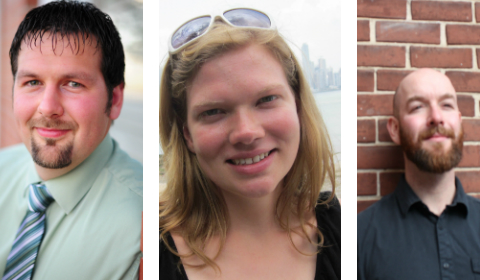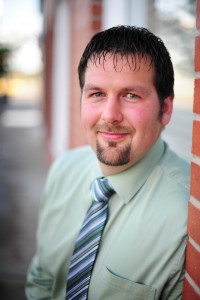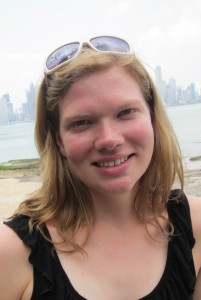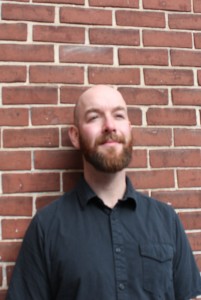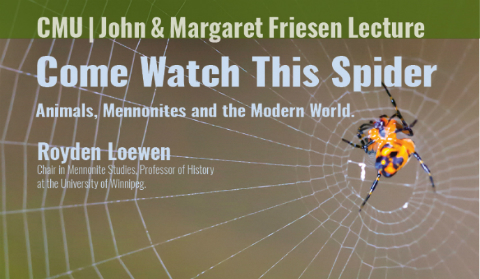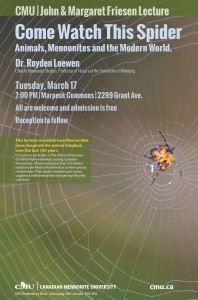CMU to host launch of ‘Voices of Harmony & Dissent’ on Tuesday, June 16
A new book arising from Canadian Mennonite University’s (CMU) Canadian School of Peacebuilding (CSOP) explores the stories, theory, and tools of 16 peace leaders, trainers, and activists from around the world.
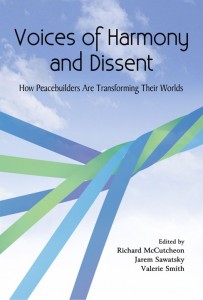
Voices of Harmony & Dissent: How Peacebuilders are Changing Their Worlds was edited by Richard McCutcheon, Jarem Sawatsky, and Valerie Smith. The editors will celebrate the release of the book with a launch event happening Tuesday, June 16 at 7:00 PM in the Great Hall at CMU (500 Shaftesbury Blvd.). The event is free, and all are welcome to attend.
Offering an intriguing mix of styles and perspectives, the peacebuilders included in the book describe how they have used their creativity, compassion, and frustrations to learn how to peacefully engage and transform the world around them.
Each contributor has taught at the CSOP, which offers a selection of five-day courses each June.
Smith, co-director of the CSOP, says the book arose out of a desire to expose people to the amazing instructors who teach at the school.
“We have so many people who are interested in the CSOP, and so many who apply but don’t get a chance to come here for all sorts of reasons, like finances and visas,” Smith says. “We wanted to find a way to serve those people who can’t be here in person.”
Published by CMU Press, Voices of Harmony & Dissent includes contributions from Ovide Mercredi, former National Chief of the Assembly of First Nations; Mubarak Awad, a Palestinian-American psychologist; Ouyporn Khuankaew, a Buddhist feminist activist from Thailand; Martin Entz, a professor in the Department of Plant Science at the University of Manitoba; Karen Ridd, Instructor in Peace and Conflict Resolution Studies at CMU; and more.
Through inspiring stories, the book takes readers on a journey of interrelated themes including women and peacebuilding, nonviolent action for social change, restorative justice, indigenous approaches to change, spirituality and creative arts, circle process, food security, mediation, intercultural peacebuilding, and truth and reconciliation.
While the style and topics of the essays are radically diverse, Smith says there are common themes that tie the collection together.
“All of the essays are written by deeply committed, experienced peacebuilders who are living what they teach,” she says.
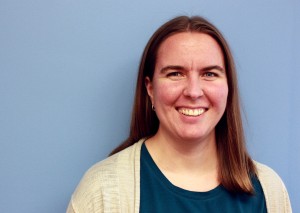
Smith adds that she is looking forward to the book launch.
“In reading through these essays over and over again, I feel like I’ve learned a little bit about each contributor and what they have offered in their classes at the Canadian School of Peacebuilding,” she says. “That feels like a real gift. I’m excited to share that with the community and hear people’s feedback as they begin to read the book.”
Established in 2009, the CSOP is a learning community of diverse peacebuilders from all faiths, countries, and identity groups who come together to learn, network, and engage in peacebuilding.
Now in its seventh year, the 2015 CSOP courses will take place June 15-19 and June 22-26.
About CMU
A Christian university in the Anabaptist tradition, CMU’s Shaftesbury campus offers undergraduate degrees in arts, business, humanities, music, sciences, and social sciences, as well as graduate degrees in theology, ministry, peacebuilding and collaborative development, and an MBA. CMU has over about 900 full-time equivalent students, including those enrolled in degree programs at the Shaftesbury and Menno Simons College campuses and in its Outtatown certificate program.
For information about CMU visit www.cmu.ca.
For additional information, please contact:
Kevin Kilbrei, Director of Communications & Marketing
kkilbrei@cmu.ca; 204.487.3300 Ext. 621
Canadian Mennonite University
500 Shaftesbury Blvd., Winnipeg, MB R3P 2N2

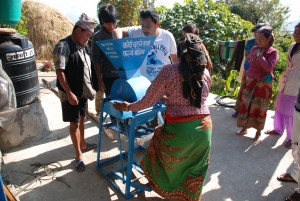 The SAK project builds upon experience gained from a
The SAK project builds upon experience gained from a 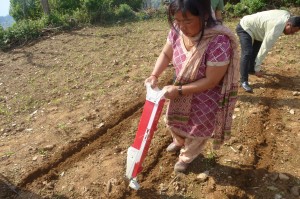 The project will address these challenges by: improving soil fertility, promoting climate change resilient crops, empowering and strengthening the resiliency of local innovators/farmers, using technology to assess farmers’ needs and collect feedback, and seeking ways to scale up the aforementioned technologies for inclusion in SAKs.
The project will address these challenges by: improving soil fertility, promoting climate change resilient crops, empowering and strengthening the resiliency of local innovators/farmers, using technology to assess farmers’ needs and collect feedback, and seeking ways to scale up the aforementioned technologies for inclusion in SAKs.![2015-06-04 - Henry Poettcker [01]](http://www.cmu.ca/media_archive/wp-content/uploads/2015/06/2015-06-04-Henry-Poettcker-01-300x199.jpeg)

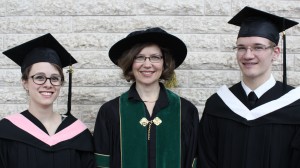
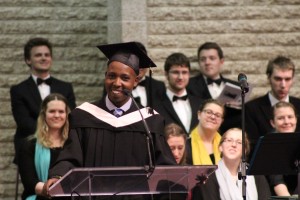
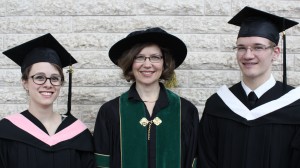
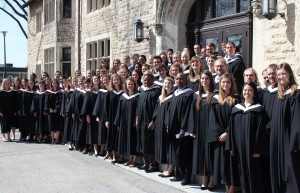
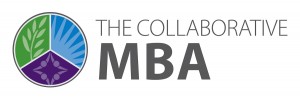 The Collaborative MBA is an accredited online program jointly offered by Eastern Mennonite University, Goshen College, Bluffton University, and CMU. Built on six core values—honouring community, leading as service, upholding justice, planning for sustainability, global citizenship, and growing spiritually—classes are delivered in synchronous (live video conferencing) and asynchronous (online learning/information sharing outside of the constraints of time and place) to accommodate both learning and employment
The Collaborative MBA is an accredited online program jointly offered by Eastern Mennonite University, Goshen College, Bluffton University, and CMU. Built on six core values—honouring community, leading as service, upholding justice, planning for sustainability, global citizenship, and growing spiritually—classes are delivered in synchronous (live video conferencing) and asynchronous (online learning/information sharing outside of the constraints of time and place) to accommodate both learning and employment CMU’s new MA program builds on the institution’s strong undergraduate programming in the areas of peacebuilding, conflict resolution, and international development and reflects one of CMU’s core values: educating for peace and justice.
CMU’s new MA program builds on the institution’s strong undergraduate programming in the areas of peacebuilding, conflict resolution, and international development and reflects one of CMU’s core values: educating for peace and justice.